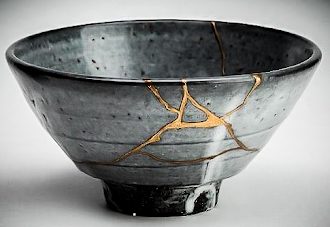(4) berserk rage (a clinical term involving a sense of god-like invulnerability and animalistic cruelty and inhumanity). Shay emphasises that the last state can last even once soldiers returned home.
Shay also outlines some aspects of the Vietnamese War that were unique to the military management of that war, such as the inability to trust one's perceptions (concealment of landmines in seemingly random objects), inability to sleep (most raids were at night-time), individual and not group rotations of soldiers (precluding communal grief), extreme dehumanization of the Vietnamese (making soldiers question their moral judgment e.g. when seeing Vietnamese soldiers with good traits), explicitly discouraging grief ("don't get sad, get even!"), Christian perceptions of self-sacrifice ("if I am willing to sacrifice myself for my friend, then why did he die? Am I still good?"). and the disconnect between the fact that Americans won every battle but were defeated in war (leading killed comrades in a ghost-like state for those left behind, without closure). Compare this to Achilles, who at least was given the ability to mourn Patroclus.
However, one of the benefits of comparing The Iliad to the Vietnamese War is that we see how vulnerable soldiers are to higher powers. The Iliad discusses the odd, whimsical, and at times cruel immortal gods, at whose hands soldiers live and die. Nowadays, Shay suggests that we might consider the larger military complex and powers-that-be as immortal gods, on whom soldiers are completely dependent.
The major criticism I had of this work is that I wish that Shay had spent more time considering the differences between honour--which Achilles cared about deeply--and fairness (which seems to be the major player in contemporary understandings of themis).
That aside, this was a fantastic piece of work. Prior to reading this, I had no sympathy for Achilles whatsoever. But Shay explained how in a combat situation, the stakes are lethal. Betrayal of trust could easily mean that one dies. A leader who does not follow the cultural norms of the army (e.g. Agamemnon taking Achilles' booty) could easily be the same leader who sends you to your death out of mere pettiness. This fact alone helped me understand Achilles' profoundly bitter rage and detachment from the Greek army.
Shay also emphasises the role of moral luck in development of character. He discusses how we are taught to think that a good person, once raised right, can withstand any and all external circumstances. But combat trauma, and trauma in general, makes us question those beliefs. It makes us realise how vulnerable our moral characters are and how dependent we are to our circumstances. Like tragedies, where there are no good choices and just inevitable suffering through no fault of the characters, veterans' stories are discomforting. We don't want to hear them. We like to imagine that if we were in their shoes, we would not have been traumatized. We would have done differently. We would not have killed civilians or had PTSD with its consequent (debilitating) effects on survivors. But the truth is that people's characters cannot withstand everything, and return to normalcy (in the sense of what is typical, i.e. innocence) is not always possible.
I found myself shaking when reading about the terrible choices that some of the soldiers had to make. Deep, irreversible loss is interlaced with gratitude: I am grateful to be lucky, I am grateful to be able to be good. But my sense of superiority is threatened by the existence of such soldiers, whose stories are reminders that our cloaks of safety can be torn to shreds by extrinsic affairs. Moral judgment in such cases is unclear, perhaps even impossible. I like to think of myself as a religious person, but I do not know what to make of tragedy, nor what to do with it. If suffering can inevitably and uncontrollably undo moral character, then where does that leave culpability?
The last point I wish to mention is Shay's emphasis on honouring the dead. The importance of the grieving process, and especially of communal grief, cannot be overstated. I know someone who told me that while he was in a United States prison on substance-related charges, his mother and his brother both died. He was not allowed to go to the funerals of either. While I always found this unfair, this book has made me realise that it was more than just that. It was inhumane and unbelievably cruel. Humans need to grieve and be able to have their losses recognised and mourned. But he can never attend their funerals, and that has the air of tragedy about it too. There are some things that cannot be taken back.
Is it justified to stay angry at such wrongs and cruelty done to oneself? Sometimes I think it is. But it might be debilitating and bring even more tears. Perhaps some events can never be resolved. Achilles cries with Priam, both mourning the deaths of those whom they love and the irreversibility of innocence lost. I don't think they will ever be the same. But they were able to enter the realm of human connection again, of honouring one another and respecting each other's losses. Without giving those with PTSD space to discuss their traumas, however discomforting, and without respecting their narratives, we can never honour them nor their fallen comrades. Nor, indeed, can we honour their enemies.



Comments
Post a Comment
please share your thoughts below